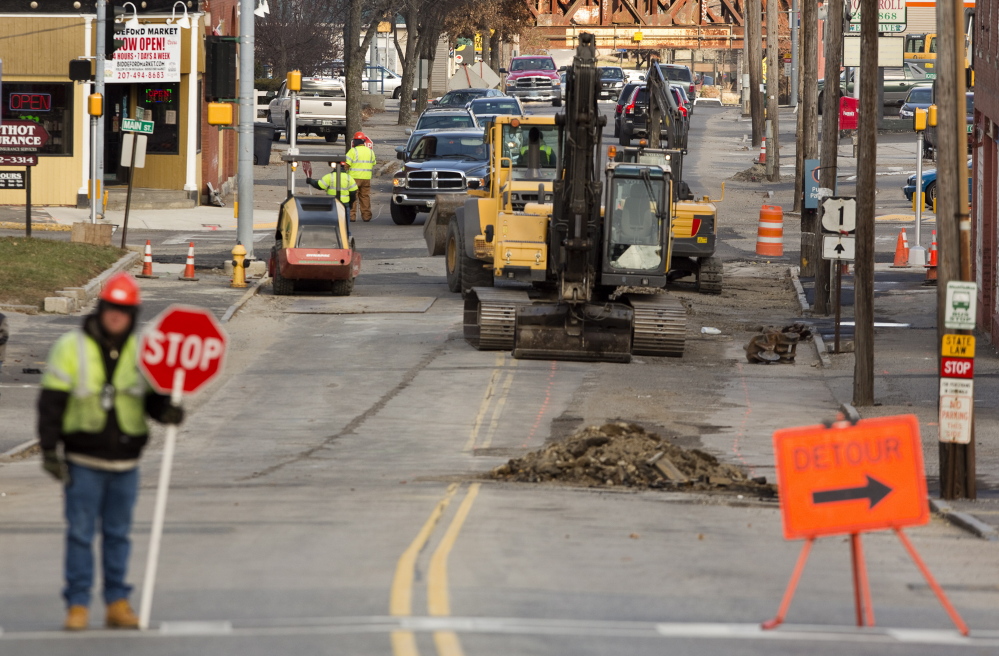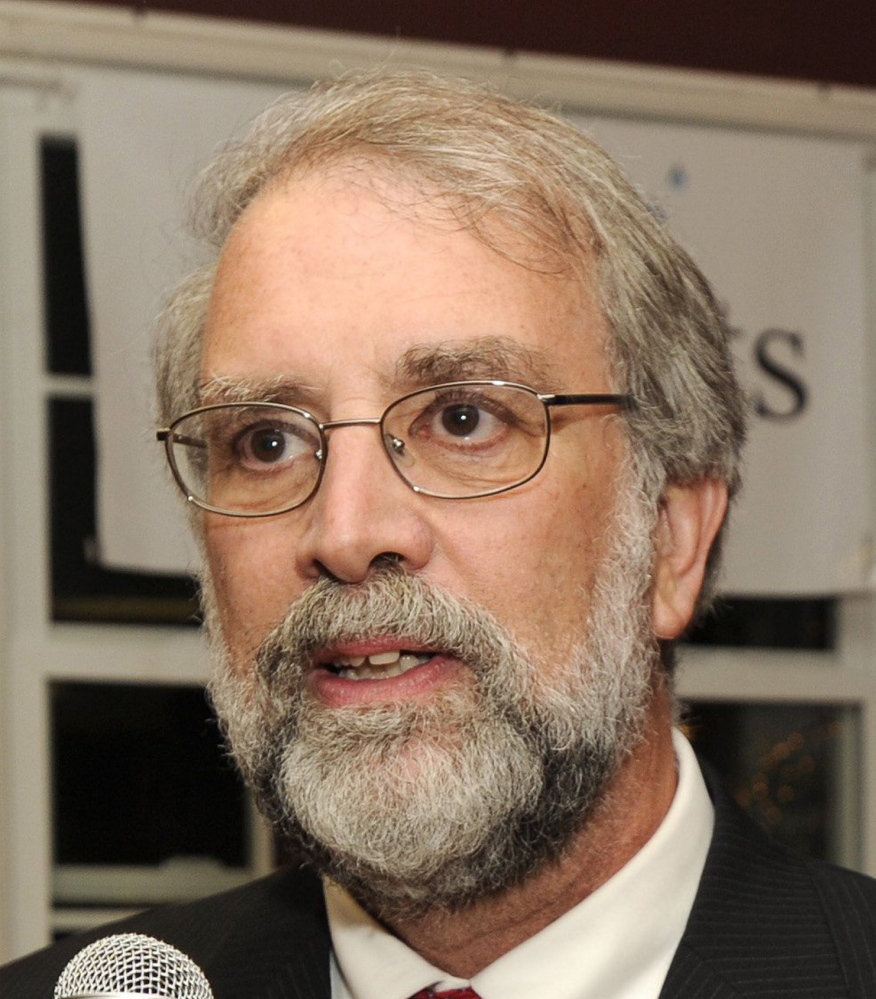Biddeford officials say they are disappointed that two bonds to fund infrastructure work weren’t approved by voters last month, but they will still try to find a way to pay for at least some of the work.
On Nov. 4, voters narrowly rejected a $12.25 million bond that would have allowed the city to repave nearly 35 miles of roads during the next five years, and a separate bond to pay for $3.6 million in sewer repairs and work to separate stormwater and sewer lines.
“At this point, we’re going to have to fund the road work out of property tax dollars directly,” said City Manager John Bubier. “It’s going to take a significant amount of time. It’s really unfortunate (that voters) chose not to fund it. We’ve got to repair the worst of the roads.”
The $12.25 million would have paid to repave about 7 miles of city roads for each of five years, and for reconstruction of other roads and shoulders. The sewer bond would have financed stormwater-sewer separation work that would be done at the same time as the paving projects, and is required under an agreement with the U.S. Environmental Protection Agency.
If the city does not meet deadlines in the EPA compliance order for line separation, it will face fines and will still be required to complete the projects, said city engineer Tom Milligan. Biddeford has completed nearly $27 million in upgrades to the sewer system since 1994, but still has about $40 million more to do under the compliance order, Milligan said.
Biddeford voters approved four of the five state bonds on the Nov. 4 ballot – they said no to a bond to fund biotechnology research and development – but rejected the local borrowing requests. The road repair bond lost by 417 votes and the sewer bond lost by 376 votes.
“It wasn’t surprising to me that the bonds got voted down because there are many people in Biddeford whose budgets are tight. They were worried about the possible impact of these projects on the (property tax) rate,” said Mayor Alan Casavant. “On the other hand, what’s disconcerting is they were bonds for work that needs to be done. Those issues aren’t going away.”
Without the option of borrowing money over the long term, the City Council must now figure out how to squeeze at least some of that work into the municipal budget without causing an increase in property taxes. The Public Works Department usually requests about $1.2 million annually for paving, which is enough to do about 6 miles of roads.
City Councilor Marc Lessard said he is disappointed the city won’t be able to take advantage of historically low interest rates to satisfy its infrastructure needs.
“We’re going to do the best we can to do the work through our yearly budgetary process, but where we were going to be able to do 35 (additional) miles of roads in five years, that will now take decades to get done.”
City Councilor Clement Fleurent, who drives an oil delivery truck and says he can attest to the poor road conditions, said he is concerned about how the city will address those issues while keeping property taxes low.
“Usually I’m not one for bonds, but this was a good deal because the interest rates are low,” he said. “It’s going to be hard to budget for this.”
Councilor Bob Mills, who supported the bonds, said he understands why the bonds were a tough sell at a time when people are seeing higher living costs but aren’t necessarily earning more money.
“I thought they were large numbers most people in the community would have difficulty accepting,” Mills said. “We’re never going to be able to catch up. We just need to go forward.”
Copy the Story LinkSend questions/comments to the editors.





Success. Please wait for the page to reload. If the page does not reload within 5 seconds, please refresh the page.
Enter your email and password to access comments.
Hi, to comment on stories you must . This profile is in addition to your subscription and website login.
Already have a commenting profile? .
Invalid username/password.
Please check your email to confirm and complete your registration.
Only subscribers are eligible to post comments. Please subscribe or login first for digital access. Here’s why.
Use the form below to reset your password. When you've submitted your account email, we will send an email with a reset code.